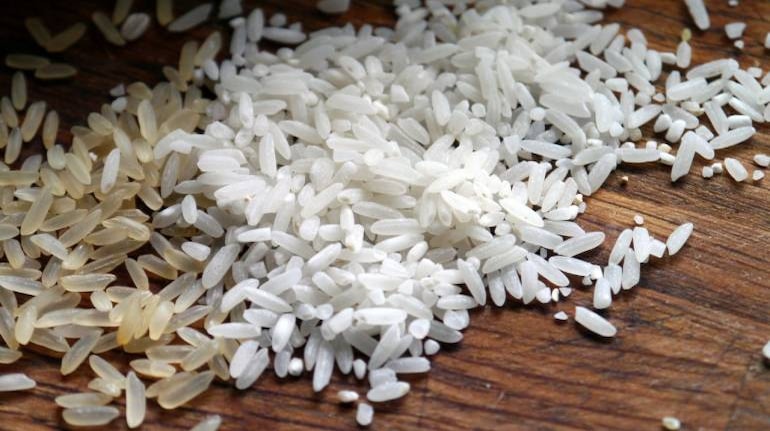



India’s decision last month to ban the export of non-Basmati white rice has given rise to serious concern about worsening global food volatility and making the prevailing situation more difficult for poor and developing countries.
On July 20, India banned the export of non-basmati white rice to contain domestic inflation and make it easily available in the Indian market.
But it had a major impact on the global market as Indian exports meet 40 percent of the rice demand in the world.
Since the decision came in the wake of Russia pulling out of the critical grain deal with Ukraine, it made a large number of people worried that the world’s food situation, already suffering from disruption due to the ongoing Ukraine war, will deteriorate further.
Unless corrective measures are taken urgently it will raise serious questions about India’s leadership of the Global South.
According to a Press Information Bureau statement, the decision to ban the export of non-Basmati white rice was to ensure “adequate availability” of the product and “allay the rise in price” in the domestic market.
In September last year, the government imposed a duty of 20 percent on the export of non-Basmati white rice to check exports of the product to other countries.
But despite the additional duty, the export of rice showed a 35 percent increase until June than the previous year.
The rise in demand in the global market is mainly due to climate change and its effect on cultivation in rice-growing countries.
But the increase in Indian exports impacted the price of non-Basmati white rice at home, which rose nearly 15 percent in a year.
The government’s decision to ban the rice came after erratic monsoon and heavy rains hit domestic crops.
Traditionally, Indian governments have ensured adequate stock of rise to tackle rising inflation at home, especially in an election year.
Balancing actThe PM Narendra Modi-led BJP coalition will be seeking a third term in the May 2024 parliamentary elections and food inflation could be a major issue unless it is checked and rice is made easily available in the domestic market.
However, this has given rise to serious questions as to what India should do to ensure that its decision to keep voters at home happy was not at the cost of the global poor.
The International Monetary Fund (IMF) has sought the removal of restrictions on non-Basmati rice exports.
According to news agency PTI, Pierre-Olivier Gourinchas, chief economist of the IMF said that these types of restrictions are likely to exacerbate volatility in food prices in the rest of the world.
“We would encourage the removal of these types of export restrictions because they can be harmful globally,” he added.
Last year, India exported 22 million tonne of rice to 140 countries, while the estimated global trade in rice was 56 million tonne.
The bulk of Indian rice is exported to Asian and developing countries, many of them in Africa.
The PIB statement said there was no change in India’s export policy for non-Basmati (parboiled) and Basmati rice.
The total export of rice from India was $11.14 billion in 2022-2023. Non-Basmati white rice accounts for 25 percent of India’s rice exports.
Russian connectionOn July 17, Russia decided to pull out of the UN-brokered Black Sea grain initiative which guaranteed safe passage for Ukrainian vessels carrying wheat and other food grains, prompting fresh concerns about a global food crisis.
Moscow justified its decision by arguing that the Ukraine food grains were going to the developed countries and not the poor countries they were meant for.
It also complained that while the European ports were clearing the Ukrainian vessels, those from Russia were detained for months.
But now India’s ban on rice exports has further deepened the crisis.
Prime Minister Modi had argued that under India’s presidency of the Group of Twenty (G20), India will be the voice of the Global South that comprises the poor and developing countries of Asia, Africa and Latin America.
The G20 had already criticised the Russian decision to pull out of the grain deal.
The African countries, which had so far maintained neutrality on the Ukraine war and refused to condemn Russia for the invasion, also seemed unhappy with Moscow’s decision to terminate its participation in the grain deal.
The disappointment was reflected at the recently held Russia-Africa summit in St Petersburg last month where only 17 countries from the continent participated, halving their attendance from the previous summit.
As part of championing the cause of the Global South, India has also proposed the inclusion of the African Union as a full-fledged member of the G20.
A decision on this will be taken at the September G20 summit in New Delhi under India’s presidency.
Hopefully, India will be able to address the rising concern about global food volatility sparked by its ban on the export of non-Basmati rice in the coming weeks before it hosts the crucial G20 summit.
Discover the latest Business News, Sensex, and Nifty updates. Obtain Personal Finance insights, tax queries, and expert opinions on Moneycontrol or download the Moneycontrol App to stay updated!
Find the best of Al News in one place, specially curated for you every weekend.
Stay on top of the latest tech trends and biggest startup news.